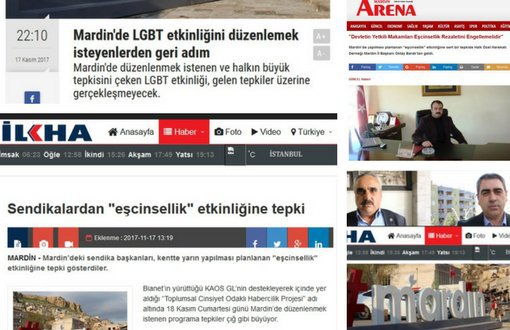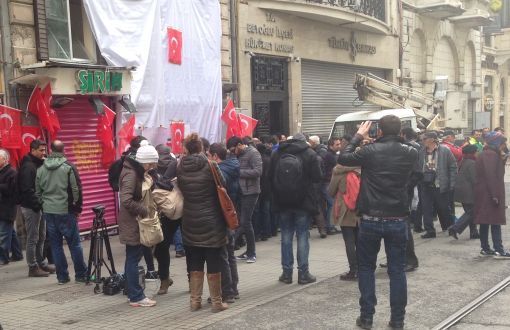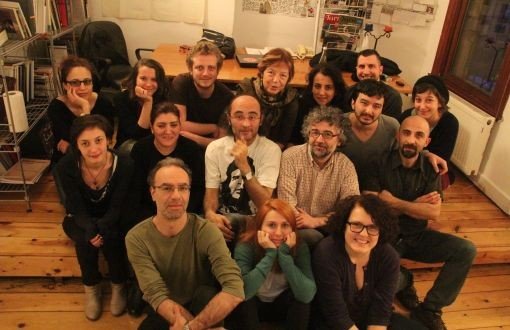Villagers Against Tunny Fish Farm
The General Director of Monuments and Museums of the Ministry of Culture gave permission for the Tunny fish farm on April 12, 2002. The villagers will apply to a court for the discontinuation and cancellation of the farm project.
Kemal Erdogan, head of the cooperative, on August 14, 2002, handed a petition to the Canakkale Directorate of Agriculture, demanding the "cancellation of the Tunny fish farm project." The directorate has still not responded.
Yucel Sayman, head of the Istanbul bar, sums up the first opposition by saying: "According to international law, it is imperative to get the views and approval of the people residing in the surroundings for projects that will affect the environment."
In fact, authorities from the company went to the coffee shop at Bektas village one day and got a written document from the villagers under the name of "approval." However, Sayman says that this document was not an approval but rather a meeting report.
Akua-Dem company, that produces and markets sea products, now has the permission and is setting up two fish tanks less than a mile away from the coast of Kuruoba village.
The tanks, called "Tunny fish production farms," are not used for breeding the fish. The baby Tunny fish that are caught in the sea are put in the tanks, fed and grown.
When they reach full growth, they will be exported to Japan. Tunny fish, believed to be produced 800 thousand a year throughout the world, is used in making sushi and canned Tunny.
According to the laws, an environmental evaluation report is also needed for the farm project. Sayman said that a diver from the Bodrum Underwater Museum came and prepared the report.
Prof. Dr. Umit M. Serdaroglu, the head of the Assos excavations and the Science Institute, sent a petition to the General Directorate of Monuments and Museums of the Ministry of Culture, to halt the project until the research is completed. Serdaroglu is suspicious about the granted permission and the report that says there are "no cultural assets" in the region.
"Diving is forbidden in the region between Kadirga peninsula and Silivri. There are many reasons for forbidding diving in a region. And the region being an archeological underwater site is one of the reasons."
According to Prof. Dr. Serdaroglu, the region is an underwater archeological site. "The information we have demonstrates that on September 1, 2002, the divers came across ship anchors and amphora near the coast of the Bektas village," said Serdaroglu.
Feeding the fish with frozen food pollutes the sea, and feeding them with live fish consumes them. The Tunny fish farms are banned in Australia and France because they pollute the sea.
Italy and Spain let setting up Tunny fish farms in polluted seas but the Japanese believe that they fish grown in polluted waters would be dirty and thus, the sushi made of those fish would be hazardous to human health. The Japanese want "Tunny fish from unpolluted waters."
About five thousand people live in the Kadirga bay. The people make a living mainly by fishing, growing olives, agriculture and of course, tourism.
"These fish remains will contaminate the beach," says Bayram Babayigit, a fisherman from Behramkale. "People will not be able to swim here. And that would affect tourism. People come here because we have the most unpolluted waters in Turkey."
Fisherman Babayigit, who angrily looks at the fish tanks from a distance says, "it is forbidden to dive here, they would immediately get you if they saw a tube in your hand."
"They cannot even establish a diving school here," says Babayigit. "These are seven partners. Some are seamen some are landsmen, they say."
Fisherman Urfer talks about the sound of Tunny fish: "They sound like a lion in a cage. You can hear them from 50 miles away. The other living things in the sea get scared of their sound. There are 400 different kinds of fish here from sardines and mullets to lobsters."
Yucel Sayman says that with the Tunny fish tanks placed right at the center of the fish immigration channels, the channel would bend towards the island of Lesbos.
Meanwhile, on the island of Lesbos, the news on Tuesday's daily Hürriyet caught a lot of attention. People are talking about taking action against the possibility of water pollution.
"So this too will be up to the European Union to solve," the villagers told. (NM/BB/EA/NM)
BY NADİRE MATER
We* Couldn’t Hold Our Journalism Workshop, LGBTI Events Banned; Voice and Silence

NADİRE MATER'S IMPRESSIONS
İstiklal Street 1 Day After Bomb Attack

We Are Thankful

EDUCATION
The Language Wound - Bilingualism with Kurdish

Nadire Mater Writes
The Grenade Pin that Killed İbrahim, İbrahim, Ali Osman and Mesut





